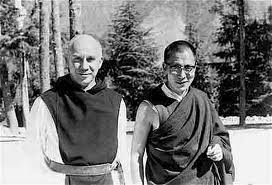East On West: Asia, Culture and the Future
Yesterday I had a talk for paper and forest industry people, painting the picture about how this, I would say almost ancient skill of work with natural fiber could be transformed into something lucrative future business. Afterwards, we talked about how dramatically things change when Asia joined in into the global fabrics of forest industries. Actually, two dramatic events coincided: the rise of Asia (particularly China) and digitalization of consumption patterns. No wonder the last ten years for most of the forest companies have meant mostly closing of factories, laying off people. As one executive told me “there became a moment when you did not want to tell you are from forest industry”.
A lot has been said about the impact of digitalization to our existing classic business sectors, such as forest industries and further on to our habits of reading newspapers and books. But very little about what the rise of Asia really means not only economically but culturally. Economics is quite obvious, if we continue with forest industry example: wood products imports, for instance, rose five-fold from 1990 to 2006. China, India and Malaysia has been working hard on wood products, while Japan and Korea have become very strong in pulp and paper, their CAGR extending 6% while Western industries struggle.
But ever more important impact may come from the realm of culture. If you compare these two cultural spaces you find a fundamental difference. Let me explain:
The bulk of western culture is based on Christianity. If there is something that stays after the Western culture is wiped off from the face of earth, it is the church. They are the monuments of our culture that some future civilizations will puzzle about. But what is the church really: go to any Gothic church and you find the essence of Christian teaching: human being is small, God is great and unreachable. The house of God here on earth has to be big, more to His proportions than ours This was and is the message: whatever we people do, it is ultimately in the hands of God what comes around.
The East in this respect is fundamentally different. You take any eastern religion or worldview – Buddhism, Confucian, Taoism, Shintoism, Hinduism – and you see human being has a very different role there. It is not really about the grace of God. It is about your own conduct of life. How you develop a sense of right path and follow it. The deities around you are there to support you but essentially it is all up to you how you do your rehearsals so that you move towards enlightenment and self-realization.
Of course you might argue that business is more or less conducted in the same way and with same principles regardless of which cultural sphere they come from. That is true. But that does not take away more deeper and fundamental influences. Take some examples of management books from your bookshop and you know what I am talking about: insisting on inner development of organization vis-a-vis outer business competence have become the call of today, much more than it was only 10 years ago. It all reflects very much the shift from outer/Western to inner/Eastern perspective.
I must confess I welcome very warmly this Eastern perspective since it is places a lot of more emphasis on us as humans and puts pressure on our personal development. This is exactly what we need here in the West . Christian ethics teaches some good things as well, like benevolence. But eventually it leaves us helpless, at the mercy of God’s will. I see that for the western culture, it is time to become an adult and accept our responsibility here on Earth. It means more meditation and less praying.
Going back to economics: Asian share of global GDP is expected to be around 50% by 2050. Already now you see how last 10 years saw a massive invasion of Asian companies to Fortune 500 list, there are now close to 200 companies with 40% share of world’s trade. These numbers mean that the Asian influence is already now powerful and real. But its cultural impact we only see after time. But it will be no less than its economic counterpart.
I hope it will be a fruitful dialogue
